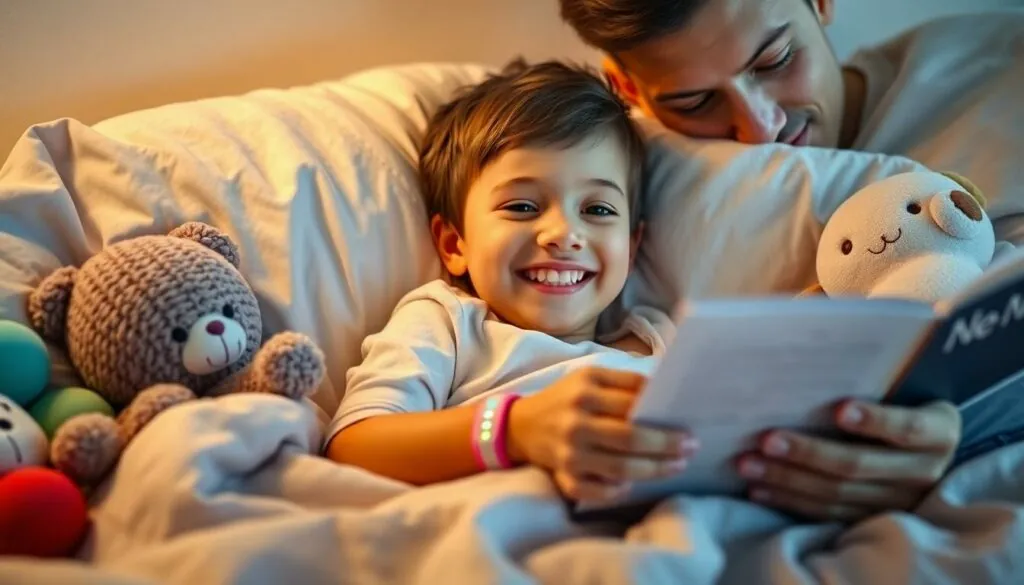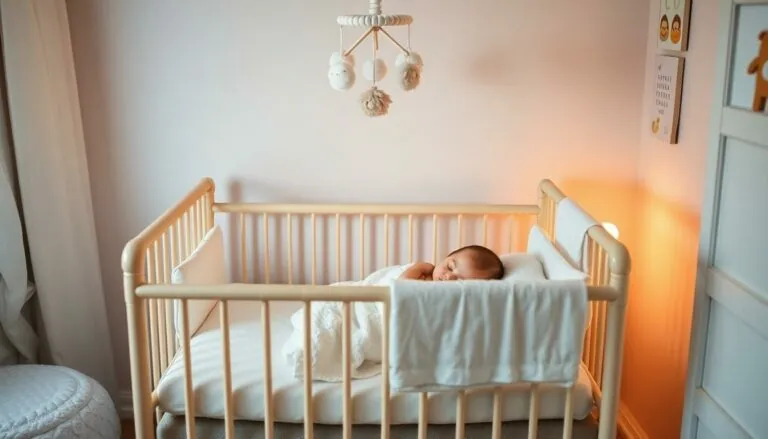Table of Contents
ToggleIn a world where bedtime stories often turn into epic battles, a sleep tracker for kids might just be the secret weapon parents need. Imagine a tool that not only monitors your little one’s sleep patterns but also helps transform those nightly struggles into sweet dreams. With the right sleep tracker, parents can finally say goodbye to the “just five more minutes” negotiations and hello to peaceful slumbers.
Overview of Sleep Trackers for Kids
Sleep trackers for kids serve as valuable tools for monitoring sleep habits. Parents can gain insights into their child’s sleep patterns through detailed data analysis. Various devices offer features such as sleep duration, sleep quality, and bedtime routines. Understanding these metrics aids in recognizing issues that may affect a child’s rest.
Multiple types of sleep trackers exist, ranging from wristbands to smartphone apps. Each device has specific functionalities tailored to different age groups and needs. For instance, some trackers employ gentle vibrations as alarms, while others provide reminders for bedtime preparation. Selecting the right tracker depends on the child’s preferences and the features most beneficial for their age.
Integration with parental controls enhances usability. Many sleep trackers enable parents to access information remotely, allowing them to monitor sleep trends conveniently. Tracking progress over time can highlight improvements, motivating children to develop healthy sleep habits.
Data privacy remains a crucial aspect of using these devices. Various manufacturers ensure compliance with data protection regulations, providing reassurance for parents concerned about their child’s information. Opting for sleep trackers designed specifically for kids often yields the best balance of engagement and security.
Ultimately, implementing sleep trackers in a child’s bedtime routine can lead to more restful nights. Enhanced communication about sleep expectations between parents and children promotes a positive sleep environment. With the right approach, sleep trackers encourage better sleep habits and reduce bedtime resistance, benefiting the entire family.
Benefits of Using a Sleep Tracker for Kids
Sleep trackers offer several benefits for children and their families. These devices monitor sleep patterns and enhance overall sleep health.
Improved Sleep Quality
Better sleep quality often results from increased awareness of sleep habits. Enhanced tracking allows parents to identify issues like irregular bedtimes or nighttime awakenings. Sleep trackers can suggest optimal sleep durations based on age and activity levels. Parents notice improvements in moods and focus when children sleep better. More restful nights contribute to daytime energy levels crucial for children’s growth and development.
Parental Insights
Gone are the nights of uncertainty regarding sleep routines. Sleep trackers provide valuable insights into a child’s sleep behaviors. Parents can view detailed statistics about sleep duration and quality through apps. Disturbances during the night become clear, allowing for proactive adjustments. Identifying patterns helps caregivers foster healthier bedtime routines. Better understanding supports positive communication regarding sleep expectations and routines. Data analysis can reveal correlations between sleep habits and academic performance, providing further motivation to improve sleep hygiene.
Features to Look for in a Sleep Tracker
Consider key factors that enhance the effectiveness of sleep trackers for kids. Choosing the right device helps ensure accurate monitoring and ease of use.
Accuracy of Sleep Data
Accuracy plays a crucial role in sleep trackers. Devices need to provide precise insights into sleep duration and quality. Trackers that utilize advanced sensors can differentiate between light sleep and deep sleep, offering parents a clearer picture of their child’s sleep patterns. Look for models that analyze sleep cycles, as this data reveals nighttime awakenings and restlessness. Reliable trackers can greatly influence sleep improvement efforts, enabling parents to establish better bedtime routines.
User-Friendly Interface
An intuitive interface enhances usability for parents and children alike. Trackers with straightforward navigation make it easier to check sleep trends and statistics at a glance. Visual representations, such as graphs or charts, allow for quick comprehension of sleep data. Devices that feature customizable notifications can remind parents about bedtime or suggest optimal sleep hours. A seamless user experience fosters engagement, encouraging families to actively participate in healthy sleep practices.
Popular Sleep Trackers for Kids
Several sleep trackers cater specifically to children’s needs, offering features that help parents monitor and improve their children’s sleep quality.
Tracker A Overview
Tracker A focuses on age-appropriate sleep patterns and routines. It features a colorful design appealing to kids, making it more engaging for them. Parents can access detailed sleep statistics through a user-friendly app. Advanced sensors differentiate between light and deep sleep stages, providing precise data. Tracker A also integrates reminders for bedtime, creating a consistent sleep schedule. The device comes with parental controls, allowing parents to customize settings and monitor sleep trends. Kids often find it motivating, as they can earn rewards for achieving sleep goals.
Tracker B Overview
Tracker B promotes a game-like experience for children to encourage healthy sleep habits. This device includes a bedtime story feature, which helps kids wind down before sleep. Parents appreciate the accessible interface and detailed reports on sleep quality and duration. Tracker B tracks sleep interruptions, providing insights into nighttime awakenings. It connects via Bluetooth to a smartphone app, allowing real-time monitoring. Children receive encouragement through various interactive challenges related to sleep. The vibrant LED display engages users, making it fun to check progress toward sleep goals.
Tips for Encouraging Healthy Sleep Habits
Establishing healthy sleep habits is essential for children’s overall well-being. A consistent sleep routine benefits both kids and parents, creating predictable bedtimes and wake-up times.
Establishing a Sleep Routine
Design a bedtime routine that includes calming activities. Reading a story, taking a warm bath, or practicing relaxation techniques promotes winding down. Schedule consistent bedtimes to reinforce sleep signals; this aids in regulating the body’s internal clock. Avoid stimulating activities close to bedtime, choosing instead peaceful environments. Celebrating small successes with children helps build excitement for the nightly routine. Keep the same pattern on weekends to prevent disruptions, ensuring a smoother transition into the week. Tracking sleep patterns with a sleep tracker provides valuable insights to identify effective routines.
Limiting Screen Time
Minimize screen time before bed to promote better sleep quality. Experts recommend stopping screen use at least one hour before sleep, reducing exposure to blue light which interferes with melatonin production. Encourage alternative pre-sleep activities, such as reading or drawing, to facilitate winding down. Talk about the importance of limiting devices in the bedroom, highlighting its role in creating a restful environment. Set clear rules around device usage, fostering healthy boundaries. Using a sleep tracker can help monitor improvements in sleep patterns as screen time decreases, reinforcing positive habits.
Conclusion
Using a sleep tracker for kids can transform bedtime struggles into a more harmonious experience. By providing insights into sleep patterns and habits, these devices empower parents to foster healthier sleep routines. With features designed to engage children and promote consistency, sleep trackers can enhance the overall quality of sleep for both kids and parents.
The journey to better sleep is supported by data-driven insights that encourage active participation from children. As families embrace these tools, they can expect not only improved sleep quality but also enhanced moods and focus during the day. Ultimately, integrating a sleep tracker into a child’s routine can lead to a more peaceful bedtime and a happier household.








